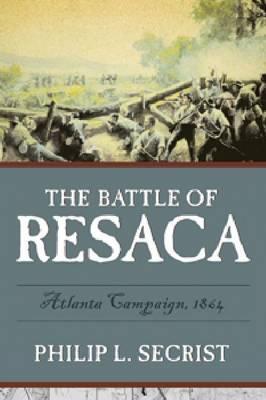The battle of Resaca in May 1864 represents a series of firsts: the first major battle of the Atlanta Campaign, the first occasion in Georgia in 1864 of Confederate and Federal armies in their entirety facing one another across a field of battle, and the first major encounter between Joseph E. Johnston and William T. Sherman as army field commanders. The two-day battle of Resaca proved to be an experience for Sherman that would cause him to alter the patterns of strategy and tactics in the campaign that followed. Disappointed by McPherson's lack of aggressiveness on two occasions, and Hooker's bungled attack on Hood' corps on May 15, Sherman abandoned General Grant's injunction to "go after Johnston's army and break it up." Instead, he reversed the original sequence of the plan by turning to the strategy of maneuver. Rather than risk a decisive battle with Johnston's army, Sherman would gain the capture of Atlanta by flanking movements drawing on his advantage in numbers. Thus, after Resaca, Sherman switched from the hunt for a decisive military showdown to the focus on what amounted to essentially political objectives. The frustrating Resaca experience reawakened his natural sense of caution. He found the strategy of maneuver more suitable to his nature and to the nature of the Midwestern army he commanded. The practical result of this switch in strategy would be Atlanta's capture in September-the timing of Atlanta's fall would have a profound political impact on the reelection of an American president and subsequently, the outcome of the war.

The battle of Resaca in May 1864 represents a series of firsts: the first major battle of the Atlanta Campaign, the first occasion in Georgia in 1864 of Confederate and Federal armies in their entirety facing one another across a field of battle, and the first major encounter between Joseph E. Johnston and William T. Sherman as army field commanders. The two-day battle of Resaca proved to be an experience for Sherman that would cause him to alter the patterns of strategy and tactics in the campaign that followed. Disappointed by McPherson's lack of aggressiveness on two occasions, and Hooker's bungled attack on Hood' corps on May 15, Sherman abandoned General Grant's injunction to "go after Johnston's army and break it up." Instead, he reversed the original sequence of the plan by turning to the strategy of maneuver. Rather than risk a decisive battle with Johnston's army, Sherman would gain the capture of Atlanta by flanking movements drawing on his advantage in numbers. Thus, after Resaca, Sherman switched from the hunt for a decisive military showdown to the focus on what amounted to essentially political objectives. The frustrating Resaca experience reawakened his natural sense of caution. He found the strategy of maneuver more suitable to his nature and to the nature of the Midwestern army he commanded. The practical result of this switch in strategy would be Atlanta's capture in September-the timing of Atlanta's fall would have a profound political impact on the reelection of an American president and subsequently, the outcome of the war.